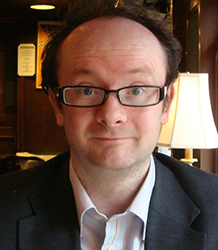
Episode 73: Ineffable Initiations and Golden Asses: Apuleius of Madauros and the Metamorphoses
Apuleius was a great Latin-language Middle Platonist writer, whose works preserve some fascinating esoteric materials which had a major impact on the development of western esotericism in the Latin middle ages and beyond. We introduce the man and his famous occult novel, the Metamorphoses, or Golden Ass.










